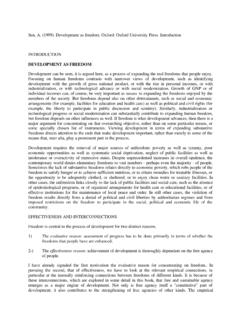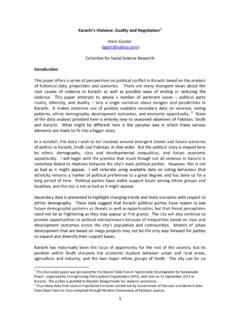Transcription of Stakeholder engagement values, business culture …
1 Published byReportReportStakeholder engagementvalues, business culture & societyBy Peter MontagnonA contribution to the Financial Reporting Council s culture Coalition ProjectEthics Training & ToolsResearch & PublicationsEventsAccreditationBusiness Ethics in EducationAdvocacyAdvice What we do The IBE was established in 1986 to promote high standards of business behaviour based on ethical values. We raise public awareness of the importance of doing business ethically. We help organisations strengthen their ethical culture through the sharing of knowledge and good IBE works at an international level, both with our multinational subscribers and in close affiliation with other business ethics organisations IBE is a registered charity, funded by corporate and individual support, both financial and intellectual, helps us research, publish, and provide training and tools to assist in the development of ethical business today and be part of a network sharing good practice in business of business EthicsDoing business ethically.
2 Makes for better businessReportStakeholder engagement values, business culture & societyA contribution to the Financial Reporting Council s culture Coalition ProjectBy Peter Montagnon1 Stakeholder engagement : values, business culture & societyAll rights reserved. To reproduce or transmit this book in any form or by any means, electronic or mechanical, including photocopying, recording or by any information storage and retrieval system, please obtain prior permission in writing from the engagement : values, business culture & societyISBN 978-1-908534-28-6 IBE First published 20th July 2016by the Institute of business Ethics24 Greencoat PlaceLondon SW1P 1 BERegistered Charity No. 1084014 This report has been prepared for the Financial Reporting Council culture Coalition projectThe Financial Reporting Council is the UK s independent regulator responsible for promoting high quality corporate governance and reporting to foster investment.
3 We promote high standards of corporate governance through the UK Corporate Governance Code. We set standards for corporate reporting, audit and actuarial practice and monitor and enforce accounting and auditing standards. We also oversee the regulatory activities of the actuarial profession and the professional accountancy bodies and operate independent disciplinary arrangements for public interest cases involving accountants and : Stakeholder engagement : values, business culture & societyContentsPageAuthor and Acknowledgements 4 IBE Foreword 5 Executive Summary 6 Chapter 1 introduction 7 Chapter 2 General principles 8 Case study 1 BAE Systems: building a relationship of 9 trust with organised labour Chapter 3 External engagement in a crisis 12 Case study 2 Talk Talk: putting customers first in a crisis 13 Chapter 4 engagement with investors 16 Chapter 5 engagement with non-financial 20 stakeholders Interview Frances O Grady.
4 TUC General Secretary 20 Case study 3 Facebook: barriers to access 26 Case study 4 L Or al: Group wide employee engagement at 27 CEO ethics day Case study 5 Marks and Spencer: supply chain in context of 31 comprehensive sustainability plan Case study 6 Unilever: collaboration with Oxfam on labour 33 standards Case study 7 De Nederlandsche Bank: supervising 36 culture directlyRelated IBE Publications 383 Stakeholder engagement : values, business culture & societyAuthor Peter Montagnon joined the IBE as an Associate Director in September 2013. Prior to that he was Senior Investment Adviser at the Financial Reporting Council, which he joined after almost ten years as Director of Investment Affairs of the Association of British two decades from 1980 Peter was a senior journalist on the Financial Times, including spells as Head of the Lex Column and in charge of coverage of the international capital markets.
5 His last assignment, from 1994 to 2000, was as Asia Editor, responsible for the FT s coverage of a region stretching from Pakistan to New graduating in Modern Languages from Cambridge University in 1972, he joined Reuters news agency as a financial journalist. At Reuters he completed assignments in Hong Kong, Zurich and Washington before joining the Financial served on the European Commission s Corporate Governance Forum from 2005 - 2011. He is past Chairman of the Board of the International Corporate Governance Network and is also a visiting Professor in Corporate Governance at the Cass business School of the City University, London, and a member of the Corporate Governance Advisory Board of the Norges Bank Investment Management and of the Board of the Hawkamah Institute for Corporate Governance, Dond of the IBE helped with research and was responsible for coordinating the advisory Stakeholder engagement : values, business culture & societyForeword culture is the outward expression of behaviours in an organisation.
6 Those behaviours, based on values, will tend to lead to a positive outcome overall, bearing in mind there will be many slightly or very different expressions of culture in an organisation for instance by team, business unit or division and is these cultures that a company s stakeholders will see and experience, for good or bad. Boards do not always stand back and review how others might see them and the company or organisation they represent. This report attempts to do this through case , in fulfilling its role in society , does need to be aware of how it is seen by others. This will help allay concerns and misconceptions that the business is all about being greedy and looking after report derives from Workstream Two of the Financial Reporting Council (FRC) culture Coalition Project which was led by the IBE. We set up a Working Group, kindly chaired by Robert Swannell, Chairman of M&S.
7 I would like to thank all those who gave of their time and expertise in contributing to this work and subsequent keeping with the FRC s main Report of Observations, IBE s contribution is also a conversation piece to add to those on business role in society . It explores how companies should reflect further on their image with shareholders and other stakeholders as they have a legitimate interest in how a company does its business its behaviour and Foster Back CBED irectorInstitute of business Ethics 5 Stakeholder engagement : values, business culture & societyExecutive SummaryExecutive Summary This report is a contribution to the Financial Reporting Council s culture Coalition project. It focuses on how companies relate to external stakeholders but should be read in the context of the overall project. The relationship between companies and the society from which they derive their licence to operate is critical to their long term future.
8 Yet, as with everything else the company does, it will reflect the values and culture it has chosen to adopt from the relationships cannot therefore be considered on their own. A company which seeks to build a positive relationship with a wide range of external stakeholders must be clear what its values are, and its own behaviour must be consistent with the message it gives to stakeholders. A company which claims values which it does not adhere to will be found out and exposed quickly by social media. Openness is critical, especially in a report makes a clear distinction between engagement between companies and their shareholders and relations with non-financial stakeholders. The former are a board matter because boards are directly accountable to shareholders. Relations with other stakeholders are also critically important, but the board s role is more generally an oversight between companies and shareholders on culture and long-term strategy has been improving, but there is a long way to go to open up discussion.
9 Shareholders are heavily focused on performance, often but not exclusively on the short term. Moreover they do not believe that they can change a bad culture from the outside. Yet they are becoming more aware of the risks of a flawed culture . Both sides need to work on ways of improving the dialogue. Among other things, sell-side analysts need to be less focused on short term financial results; the tendency should be resisted for the governance discussion to be swamped by remuneration; and there is a need to calibrate reporting to give more prominence to indicators, such as staff turnover, which have a bearing on corporate to non-financial stakeholders, a key relationship is with customers. A healthy corporate culture will invariably involve giving their needs and expectations a real priority. A business model focused on delivering real value to customers is likely to be sustainable.
10 One that seeks to extract value will not. The way in which companies engage and motivate their staff to deliver value is critical. This can have an important impact on important stakeholders singled out are suppliers and regulators. In both cases long term relationships based on openness and trust pay off. Companies must treat their suppliers fairly, for example by paying them promptly, but they must also demand and promote standards of behaviour they would impose on themselves. A narrowly self-interested approach to regulation leads to confrontation and prescription. A more socially aware company can deal with regulators and other stakeholders by identifying shared objectives of benefit to Stakeholder engagement : values, business culture & societyChapter 1 1 UK Companies Act 2006, Section 172. Stakeholders specifically mentioned are: employees, suppliers, customers and the do not exist in isolation.







